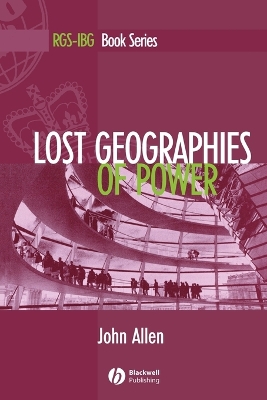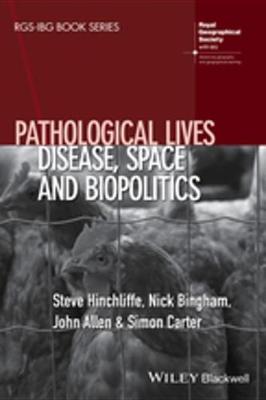RGS-IBG Book
1 primary work • 2 total works
Book 2
This original study explores the difference that space and spatiality make to the understanding of power.
- Explores the difference that space and spatiality makes to an understanding of power.
- Moves forward the incorporation of ideas of space into social theory.
- Presents a new understanding of the exercise, uses and manifestations of cultural, economic and political power in the second half of the twentieth century.
- Illustrated with cases and examples.
Pathological Lives
by Steve Hinchliffe, Nick Bingham, John Allen, and Simon Carter
Published 16 December 2016
Pandemics, epidemics and food borne diseases are a major global challenge. Focusing on the food and farming sector, and mobilising social theory as well as empirical enquiry, Pathological Lives investigates current approaches to biosecurity and ask how pathological lives can be successfully 'regulated' without making life more dangerous as a result.
- Uses empirical and social theoretical resources developed in the course of a 40-month research project entitled 'Biosecurity borderlands'
- Focuses on the food and farming sector, where the generation and subsequent transmission of disease has the ability to reach pandemic proportions
- Demonstrates the importance of a geographical and spatial analysis, drawing together social, material and biological approaches, as well as national and international examples
- The book makes three main conceptual contributions, reconceptualising disease as situated matters, the spatial or topological analysis of situations and a reformulation of biopolitics
- Uniquely brings together conceptual development with empirically and politically informed work on infectious and zoonotic disease, to produce a timely and important contribution to both social science and to policy debate

